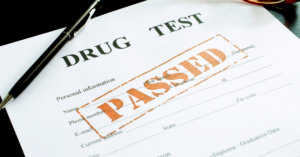

Moving through the landscape of mental health and substance use disorders is often intricate, particularly when individuals experience both simultaneously. Co-occurring disorders, also known as dual diagnosis or comorbidity, present a complex challenge for healthcare providers and individuals alike. This phenomenon underscores how mental health and substance use intertwine, highlighting the need for integrated approaches to diagnosis and treatment. At Diamond Recovery, we recognize the profound impact of a dual diagnosis on individuals’ lives and are committed to providing comprehensive care that addresses both mental health and substance use components concurrently. People in such a situation can find the support they need via our co-occurring disorder treatment program.
Co-occurring disorders, also referred to as dual diagnosis or comorbidity, are conditions in which a person has two or more mental health or substance use disorders at the same time. This intricate relationship has the potential to seriously impair a person’s general well-being and make approaches to therapy more difficult. Understanding these and how they affect people is a crucial first step in getting them the help they need.
Examples of co-occurring disorders can include:
Co-occurring disorders pose unique challenges in terms of management and diagnosis. Individual differences in the interactions between mental health and substance use call for personalized and all-encompassing care methods. The best chances of recovery and long-term well-being are provided by integrated treatment approaches that concurrently address mental health and substance use issues.
The treatment of co-occurring disorders requires a thorough and integrated approach that recognizes the interconnectedness of mental health diseases and substance use issues. Such an approach often begins with a comprehensive assessment to identify the specific conditions present and their respective severity. Following this, treatment plans are tailored to address both aspects concurrently, typically incorporating a combination of psychotherapy, medication management, support groups, and skill-building exercises.
Individuals participating in integrated treatment programs receive the tools and support needed to manage symptoms, address underlying issues, and build healthy coping methods. Integrated approaches provide a comprehensive route to recovery that attempts to lower the risk of relapse and enhance long-term well-being by concurrently addressing mental health and substance use disorders within the same treatment framework.
Co-occurring disorders treatment must also include aftercare and continued monitoring. To continue progress, recovery is a continuous process that needs constant assistance. Individuals gain access to community services, ongoing therapy, and involvement in support groups after finishing official treatment. Mindfulness activities, physical activity, and dietary counseling are all holistic approaches that can help with general wellness and resilience.
Those individuals with dual diagnoses might achieve improved quality of life and sustained recovery by addressing the intricate interplay between mental health and drug use disorders via comprehensive and ongoing care.
As one of the top Florida rehab centers, our comprehensive range of services is designed to address the complex needs of individuals struggling with dual diagnosis. We offer a spectrum of care that spans from residential treatment to outpatient services.
Our Florida addiction treatment programs provide a supportive environment for individuals to address substance use issues, while our mental health programs offer evidence-based therapies to manage underlying psychiatric conditions. With a continuum of care that includes various levels of treatment intensity, from intensive residential programs to outpatient therapy and aftercare support, we aim to meet individuals wherever they are on their journey to recovery.

Creating foundations of solution for those suffering from substance use disorders.
Licensed by the State Department of Health Care Services
License: 191117AP
Expires: 01/31/2026
© Diamond Recovery 2024
About Us
Quick Links